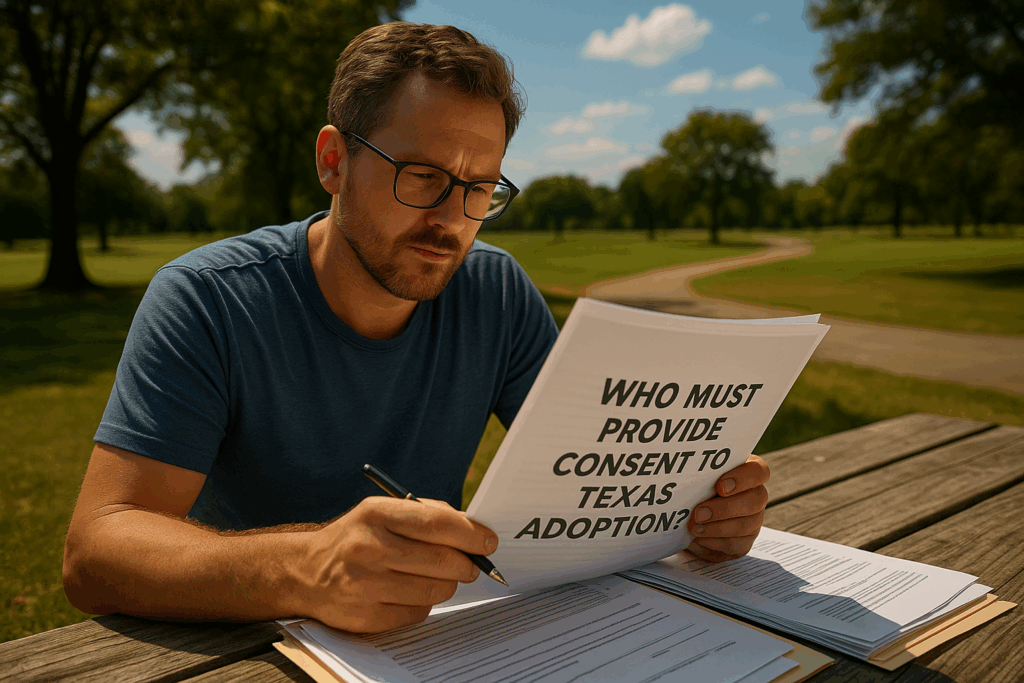Overview of Texas Adoption Laws
This section provides a comprehensive overview of the adoption laws in Texas, detailing the legal framework that governs the adoption process. Understanding these laws is essential for both prospective adoptive parents and biological parents to navigate the complexities of adoption.
Texas adoption laws encompass various aspects, including eligibility requirements, types of adoption, and the legal rights of all parties involved. For instance, the Texas Family Code outlines the necessary steps for adoption and the legal implications of each type of adoption, such as agency adoptions, independent adoptions, and stepparent adoptions.
The Role of Biological Parents in Adoption
Biological parents play a crucial role in the adoption process, particularly concerning their rights and responsibilities. This section emphasizes the importance of informed consent and the legal requirements for biological parents when considering adoption.
In Texas, biological parents must provide consent for the adoption to proceed, which can be a complex emotional and legal decision. They have the right to understand the implications of their consent, including the relinquishment of parental rights and the potential for future contact with the child, depending on the terms agreed upon during the adoption process.
Understanding Consent in Texas Adoption
Consent is a pivotal element in the Texas adoption process, ensuring that all parties are aware of their rights and obligations. This section delves into the specific consent requirements outlined by Texas law.
Resources for Prospective Adoptive Parents
Prospective adoptive parents often seek guidance and resources to help them through the adoption journey. This section highlights valuable resources available in Texas for those considering adoption.
In Texas, numerous organizations and agencies provide support and information for prospective adoptive parents. These resources include legal consultations, support groups, and educational workshops that cover various topics related to adoption, such as understanding the legal process, preparing for a home study, and connecting with other adoptive families.
Overview of Texas Adoption Laws
This section provides a comprehensive overview of the adoption laws in Texas, detailing the legal framework that governs the adoption process. Understanding these laws is essential for both prospective adoptive parents and biological parents to navigate the complexities of adoption.
Texas adoption laws encompass various aspects, including eligibility requirements, types of adoption, and the legal rights of all parties involved. For instance, the Texas Family Code outlines the necessary steps for adoption and the legal implications of each type of adoption, such as agency adoptions, independent adoptions, and stepparent adoptions.
The Role of Biological Parents in Adoption
Biological parents play a crucial role in the adoption process, particularly concerning their rights and responsibilities. This section emphasizes the importance of informed consent and the legal requirements for biological parents when considering adoption.
In Texas, biological parents must provide consent for the adoption to proceed, which can be a complex emotional and legal decision. They have the right to understand the implications of their consent, including the relinquishment of parental rights and the potential for future contact with the child, depending on the terms agreed upon during the adoption process.
Understanding Consent in Texas Adoption
Consent is a pivotal element in the Texas adoption process, ensuring that all parties are aware of their rights and obligations. This section delves into the specific consent requirements outlined by Texas law.
Resources for Prospective Adoptive Parents
Prospective adoptive parents often seek guidance and resources to help them through the adoption journey. This section highlights valuable resources available in Texas for those considering adoption.
In Texas, numerous organizations and agencies provide support and information for prospective adoptive parents. These resources include legal consultations, support groups, and educational workshops that cover various topics related to adoption, such as understanding the legal process, preparing for a home study, and connecting with other adoptive families.

